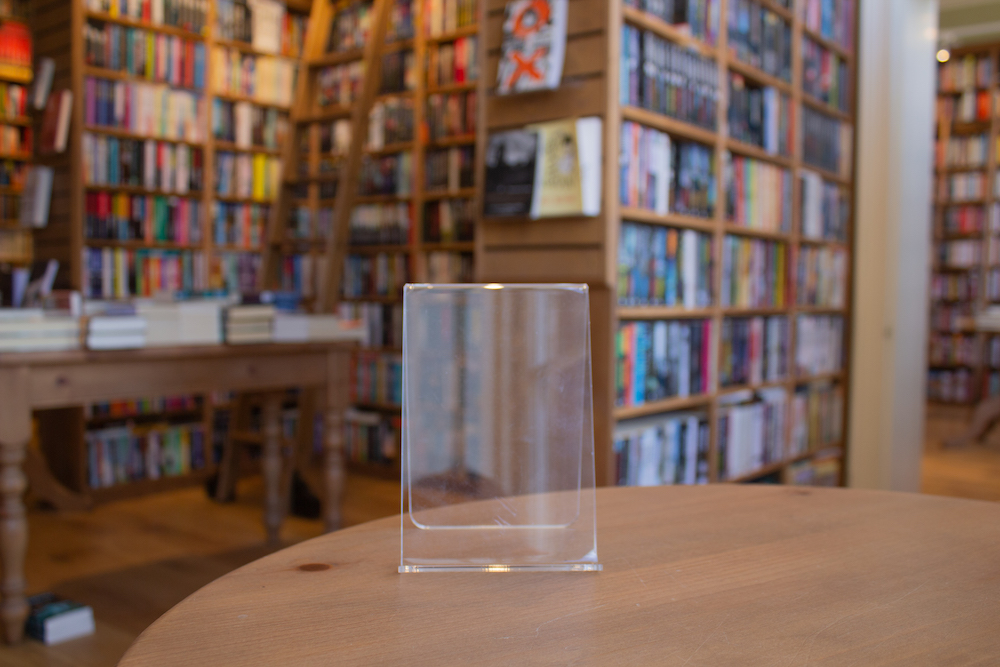Our Bookseller Recommendations
Playground
by Richard Powers
Powers magisterially returns with 'Playground'. Set in the deep oceans, Powers is strongest when writing about the wonder of the natural world and the disbelief at the notion of animals 'playing': an act that requires cognisance, development, sociability, and learning. Like a coral reef, each narrative strand links to a larger, overarching story, which will push a remote Pacific Island community to question its economy, environment, colonial history, and humanity in the face of AI-inspired technology. We see a battling out of power dynamics through the play of the game Go that seeps into the relationship of the story's two central characters, Rafi and Todd. A sparkling, electric novel!
Duncan, Edinburgh
The Empusium
by Olga Tokarczuk
A mash of folk horror, thriller, and eco-fiction. For any of those who are unfamiliar with the Nobel Prize for literature-winning author, you won't be disappointed in picking up a copy. Borrowing from Thomas Mann's 'The Magic Mountain', 'The Empusium' is set in a remote Silesian Empusium in 1913, where young men are recovering from a respiratory illness. Each recovering patient is emblematic of a different type of philosophy of the time, and as the world creeps to an inevitable crescendo of violence, strange things start to happen on this sunny, breathless valley side. As people start to go missing, the men sense something is watching.
Rachel, Edinburgh
Intermezzo
by Sally Rooney
This book has been on my mind for a while, and it's exciting to read a novel that gets better with time. After the death of their father, brothers Peter and Ivan share chapters as they depict two sides of the same coin with different narrative styles. Recently, Rooney has said that Peter’s narration was inspired by James Joyce’s Leopold Bloom in 'Ulysses’ and juxtaposes to his brother Ivan’s more languid speech. In her attempts to use this literary influence, Rooney is excellent at capturing the inner dialogues and psychology of her characters, creating a style that is highly readable, visceral, and contemporary. In echoes of past novels, we have non-traditional romantic relationships, battling power dynamics through the larger motif of 'chess', and a questioning of faith. I was really impressed by this novel, in its grief, its intensity, and the breadth of many inspirations and ideas melding together for an ultimately hopeful message.
James, St Andrews
We Will Not Be Saved
by Nemonte Nenquimo
A fascinating memoir from an activist at the forefront of protecting Ecuador's ancient rainforests. Natsume details her upbringing in the remote jungle, her difficult encounters with missionaries, and her epic struggle against the oil companies that have caused such environmental damage to her home. Shining through throughout is her deep love for and connection to the land and nature she grew up in, and is a powerful testimonial as to why these environments must be better protected.
Rachel, Edinburgh
Ducks
by Kate Beaton
At first the catchy title seems to misrepresent this powerful, genre-defying graphic novel memoir. But Kate Beaton's masterfully drawn account of her two years working in Alberta's oil fields gradually reveals a strong connection to these waterfowl's migratory nature and their intersection with environmental destruction. Kate, a Nova Scotian woman with a liberal arts degree, is far from one's typical image of an oil sands worker. I was immediately drawn to her unique perspective into an industry I would have otherwise continued to comfortably overlook. With equal precedence, she recollects trauma and daily mundanity, propelling an undercurrent of tacit yet stark social and environmental commentary.
Grace, St Andrews
Winner of the International Booker Prize 2024
Kairos
by Jenny Erpenbeck
This is a brilliant, allegorical novel by one of Germany's most powerful contemporary authors. On the surface, this is the story of a love affair between a young student and an older, married man. Erpenbeck deploys all her skills to interweave a fascinating depiction of the dying years of the GDR with an intense portrayal of abusive love.
Lucy, Ely
Cloistered
by Catherine Coldstream
Joining the Akenside Priory in her mid twenties, Catherine embraced her new faith and vocation with a burning passion - a dedication that gleams throughout from her heartfelt prose. However, even within the tight-knit world of an enclosed monastic order, many of humanity's most destructive and worrying flaws were ever present. Catherine's account is a testament to the ideals of faith and belonging, and how the struggles of simply being human can bring a person to the highest heavens and the deepest abyss.
Harry, St Andrews









